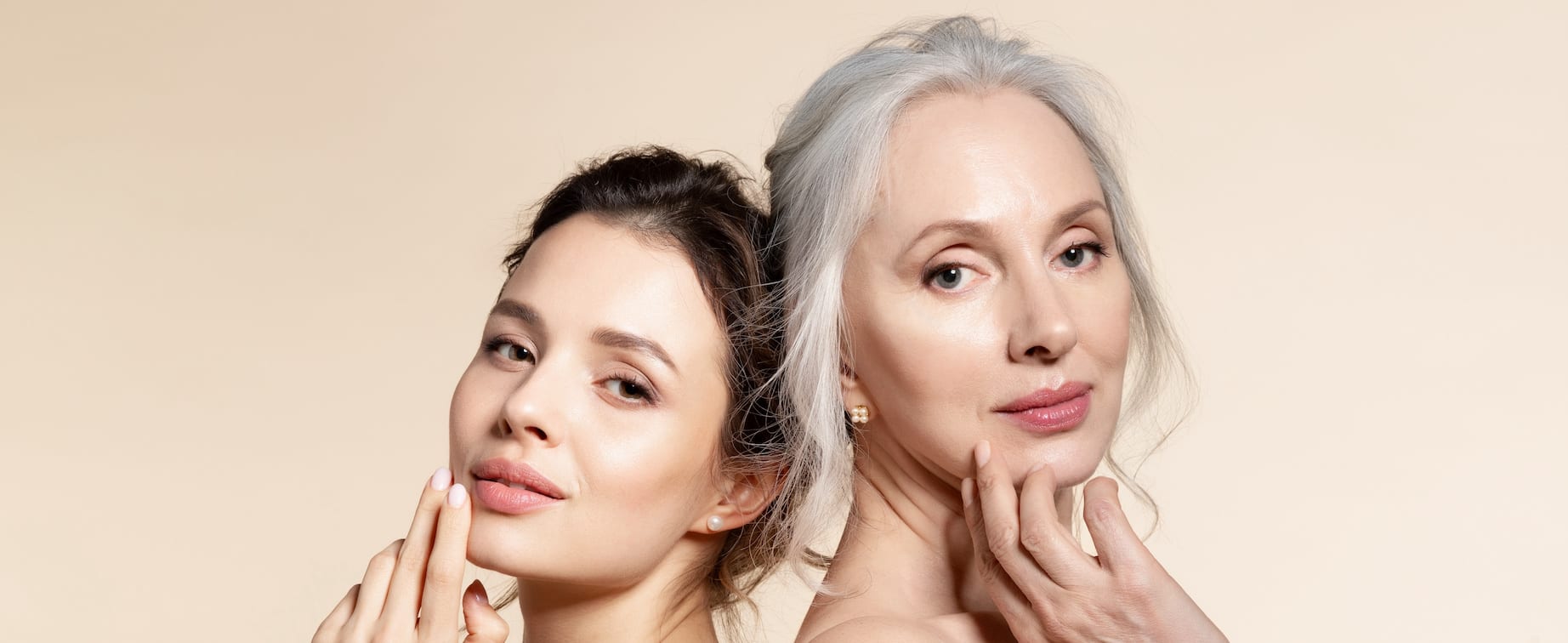Is Hair Loss Genetic?
Certain types of hair loss are more prevalent in genetically susceptible women. For example, androgenetic alopecia (AGA) (female pattern hair loss) is often caused by genetic traits that cause high levels of androgen. This hormone is linked to hair loss. 1 Experts generally agree that environmental factors can also cause AGA, but it is usually genetically determined. 2 However, not every type of hair loss is genetic. Read on to learn more about the common causes of hair loss in women.
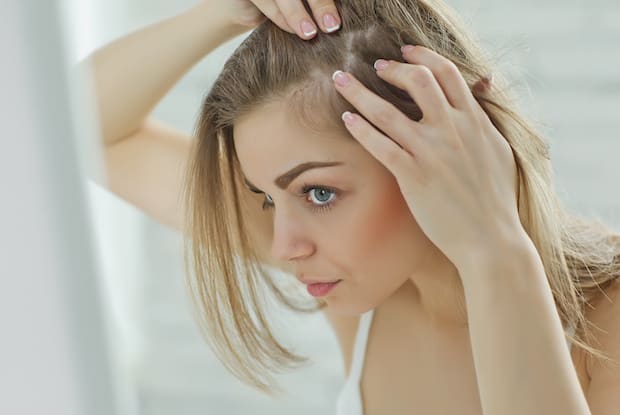
Medical Conditions that Cause Hair Loss
If the cause of your hair loss isn’t hereditary, the likely cause is an underlying medical condition. Many medical conditions contribute to hair loss, but the main culprits are thyroid disorders, skin conditions, and polycystic ovary syndrome (PCOS). Most types of hair loss can be managed with prescription minoxidil, but treating the root cause is often more effective for reversing hair loss.
a. Thyroid and Hair Loss
Alopecia areata is an autoimmune disorder that causes hair loss. In a study of 78 patients with newly diagnosed alopecia areata, researchers found that abnormalities in thyroid function were significantly associated with hair loss. 3 In this study, 41 percent of the participants were women.
Of the 78 patients in this study, 24 percent were diagnosed with hypothyroidism, hyperthyroidism, or Hashimoto’s thyroiditis. 3 Women who have alopecia areata and experience symptoms of an enlarged thyroid gland like muscle tremors or trouble sleeping should visit a healthcare center to test their thyroid.
b. Can Psoriasis Cause Hair Loss?
Psoriasis is a chronic skin condition characterized by itchy, scaly, and inflamed patches in various parts of the body. Psoriasis commonly affects the knees and elbows but may also occur on the scalp. Scalp psoriasis causes the scalp to dry and itch. With scalp psoriasis, dandruff and scales may form, causing moderate to severe itching.
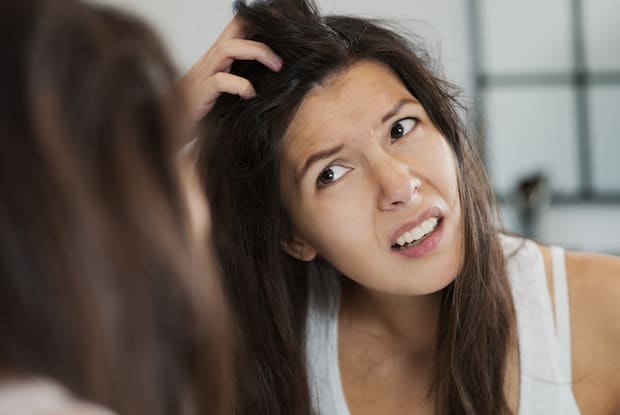
c. PCOS and Hair Loss
Polycystic ovary syndrome causes several symptoms, including female pattern hair loss (FPHL). 5 PCOS causes a woman’s ovaries to produce excess amounts of the androgen hormone. This hormone is a male sex hormone found in the female body in small amounts. In addition to hair loss, PCOS is known to cause acne, oily skin, and weight gain. Female pattern hair loss is typically treated with minoxidil 2% topical solution. This topical medication is usually applied twice a day for one year.
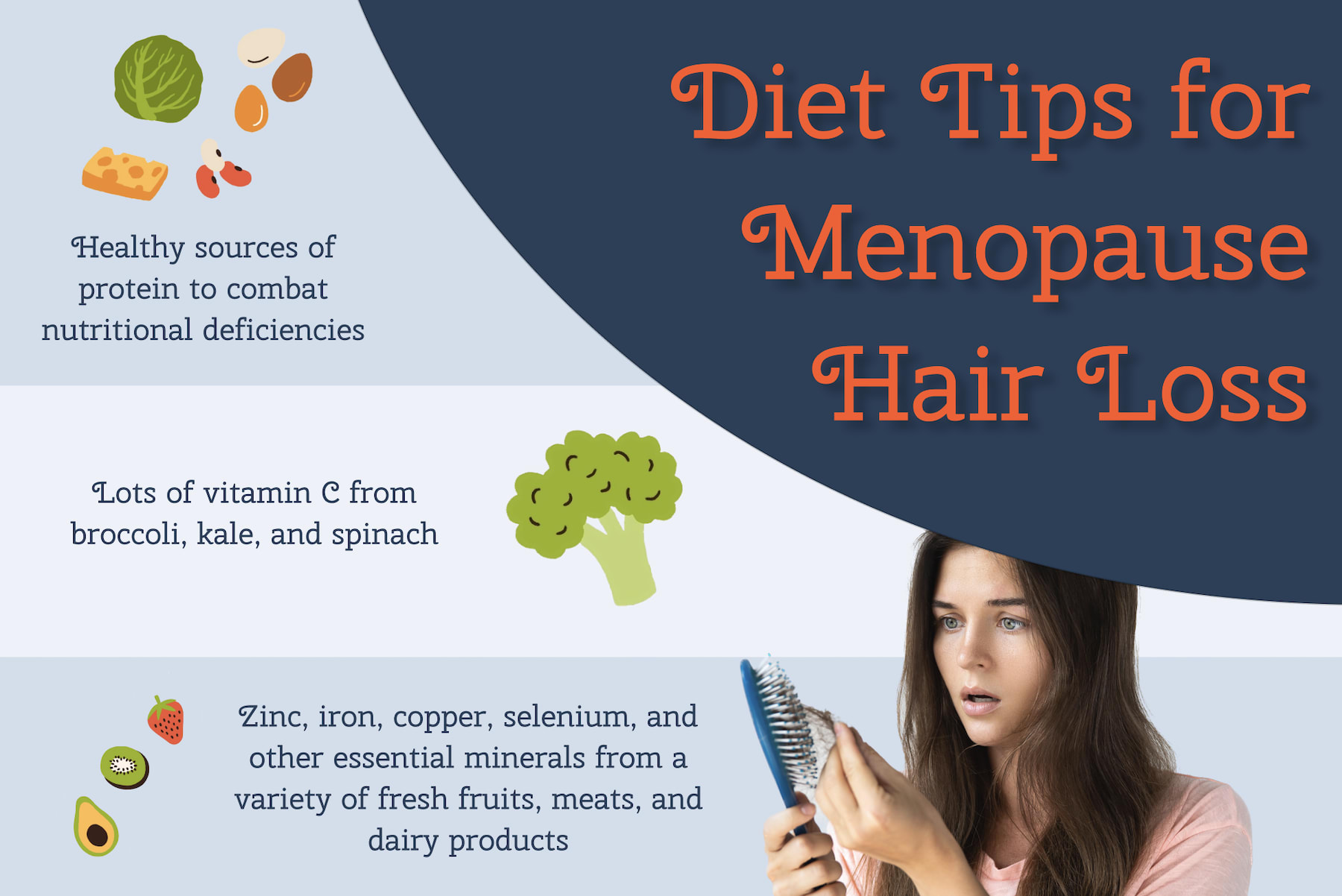
Menopause Hair Loss
Menopause does not always cause hair loss. Menopause is associated with hair loss because menopausal women typically have a higher level of androgen. As mentioned above, increased androgen levels can lead to several types of hair loss. Luckily, hair loss during menopause may be prevented with a diet plan that corrects nutritional deficiencies. A detailed article published in the Menopause Review outlines these important supplements that you may want to add to your diet:
- Healthy sources of protein (cottage cheese, yogurt, fish, poultry, legumes, nuts)
- Omega-3 fatty acids and omega-6 polyunsaturated fatty acids
- Vitamin C (green parsley, broccoli kale, spinach)
- Vitamin D (eggs, tuna liver oil, salmon, sardines)
- Niacin (whole wheat grains, milk, peanuts, shellfish, yeast)
- Vitamin B12 (animal products, dairy products, seafood)
- Minerals (zinc, iron, copper, selenium, silicon, magnesium, calcium) 6
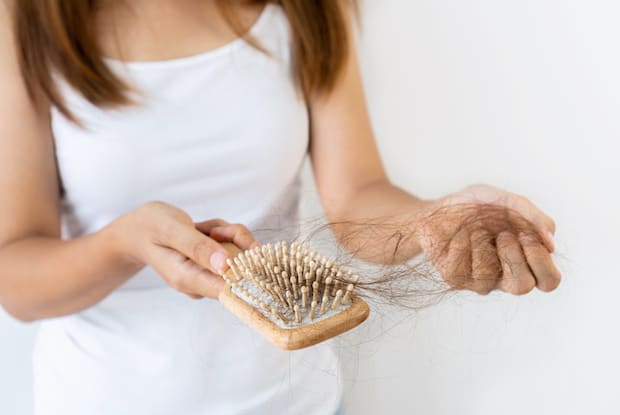
Hairstyles for Hair Loss
Finally, some hairstyles put excess strain on the hair follicles and may increase the risk of hair loss. For example, excessively tight braids and cornrows commonly damage the hair follicles, causing traction alopecia. Other self-inflicted causes of hair loss include bad hairbrushes, chemical hair treatments, hair curlers or straighteners, and blow dryers. Drying your hair too aggressively with a towel after a shower may also damage the hair. Fortunately, hair loss caused by tight hairstyles or poor scalp care can usually be reversed. If you catch traction alopecia early, there is a good chance that you can get back a luscious, full head of hair.
Hair loss can be a deeply personal and emotional experience for many women, but it's important to remember that you're not alone. With the right support, treatments, and lifestyle changes, it's possible to regain both your hair and your confidence. If you're looking for personalized guidance and effective solutions, consider exploring mailMymeds, an online service with a wide range of treatments and expert advice delivered right to your door. Take the first step toward reclaiming your hair—and your self-esteem—by visiting mailMymeds today.
The content in this article is intended for informational purposes only. This website does not provide medical advice. In all circumstances, you should always seek the advice of your physician and/or other qualified health professionals(s) for drug, medical condition, or treatment advice. The content provided on this website is not a substitute for professional medical advice, diagnosis, or treatment.
